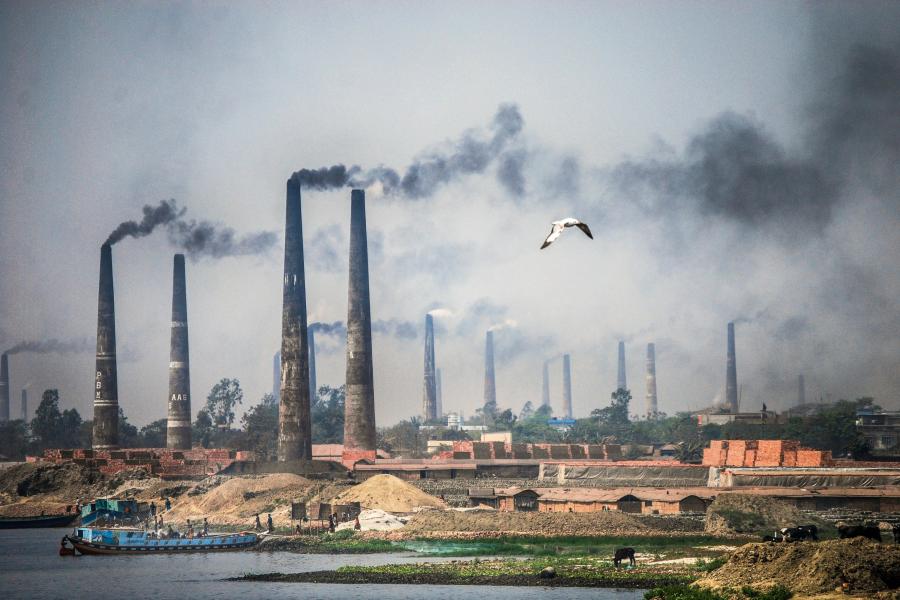Air Quality Action Forum Annual Conference
02 March 2023
The AQAF Annual Conference, held on 27-28 February 2023 in New Delhi, focused on identifying opportunities to strengthen air quality management in India. Over 150 participants attended, showing strong support for improving air quality and reaffirming their commitment to reducing air pollution for the benefit of every citizen.

Air pollution is a major global health concern, with complex sources and multiple pollutants spreading across regions and various sectors, making mitigation a significant challenge.
Air pollution in India is caused by multiple sources – from residential cooking and heating, transportation, industries, power plants, agriculture, waste disposal, generators to construction and road dust. Additionally, seasonal stubble burning exacerbates the issue, creating a pressing challenge for the government to formulate action plans to address the year-round and seasonal air pollution over the last three decades.
The UN Environment Programme and Paytm Foundation have launched the Air Quality Action Forum (AQAF), a unique platform aimed at tackling air pollution collaboratively. Bringing together stakeholders from the corporate sector, expert institutions, international agencies, and UN entities, AQAF supports India's efforts towards inclusive air quality management.
The AQAF Annual Conference, held on 27-28 February 2023 in New Delhi, focused on identifying opportunities to strengthen air quality management in India. Over 150 participants attended, showing strong support for improving air quality and reaffirming their commitment to reducing air pollution for the benefit of every citizen.
"India's air pollution is a complex and multi-sectoral issue that transcends jurisdictional boundaries. It requires focused efforts and a holistic approach that leverages the synergy of all stakeholders. This is the need of the hour," stated Mr. Atul Bagai, Head of UNEP in India.
During the conference, Mr. Shombi Sharp, UN Resident Coordinator in India, emphasized that clean air is a basic human right. He further added that, as air pollution emanates from various sources without respect for borders, effective responses to this issue must also involve multiple stakeholders across several sectors.
"At Paytm Foundation, we are committed to creating a better India through our financial inclusion initiatives and impact-driven work to reduce air pollution across the country. We believe that a united and inclusive approach is necessary to drive clean air initiatives and improve the quality of the air we breathe," said Vijay Shekhar Sharma, Managing Director and Chief Executive Officer of Paytm.
The Annual Conference was in line with the Indian government's vision for improving air quality. Key findings from the Needs Assessment were shared, highlighting gaps and opportunities in air quality management. The Resource Centre was introduced as a response to these challenges, and industry, transport, and air quality technology platforms were discussed as specific solutions.
“To combat the air pollution crisis, our first step must be to establish clear targets for reducing air pollution levels in India's 21 most polluted cities, and then take concerted action towards achieving those targets. Leveraging data for effective governance and monitoring of air pollution will be key in driving the necessary transformations towards cleaner air and a healthier future for all,” concluded Shri Amitabh Kant, G20 Sherpa of India, in his closing remarks.
The two-day conference brought to light a number of recommendations that have the potential to significantly enhance air quality management in India. These include:
-
Capacity enhancement for regulators to improve analytical and quality assurance and control capabilities
-
Support for air quality management within the Micro Small and Medium Enterprises sector
-
Enhanced financing of various government initiatives and sub-initiatives
-
Development of a country-specific repository of Best Available Techniques for emissions prevention and control
-
Development of a national-level repository for all air quality management projects
-
Establishment of Information Centers for enhanced information dissemination
-
Updating City Master Plans to include air quality considerations
-
Improving monitoring and reporting frameworks for sectoral initiatives
-
Adopting a two-pronged mitigation strategy to ensure climate co-benefits
-
Undertaking annual air quality assessments for better policy and decision-making
-
Developing and implementing a robust framework for assessing the techno-economic feasibility of air quality measures
-
Mainstreaming Decision Support Systems for states and cities
-
Developing criteria for assessing, reporting, and rating businesses with green practices on air pollution and climate footprints
-
Including human and ecosystem health aspects in the existing air quality regulatory framework
-
Ensuring a robust mechanism for performance-based funds allocation to states and urban local bodies
Know more: https://www.unep.org/events/conference/air-quality-action-forum-annual-…









